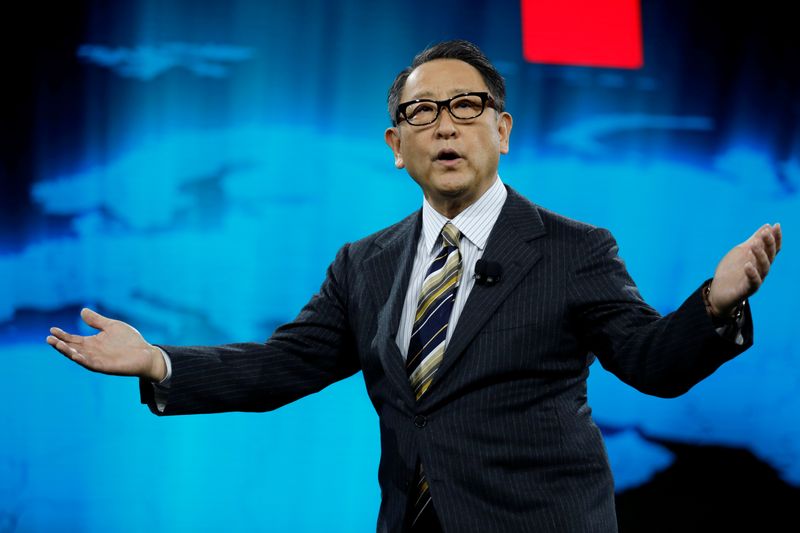TOKYO (Reuters) – The head of the world’s largest automaker joined other high-profile Tokyo Olympics sponsors on Wednesday in publicly criticising the head of the country’s Games committee for making sexist remarks.
Tokyo 2020 Olympics President Yoshiro Mori has incited anger at home and abroad with remarks last week that women talk too much, causing meetings to drag on. He has apologised but refused to resign.
“We are disappointed by the recent comments from the President of TOCOG (Tokyo Organising Committee of the Olympic and Paralympic Games), which are contrary to the values that Toyota respects and supports,” Toyota Motor Corp President Akio Toyoda said.
Toyota became a top level Olympic partner because it shared the values with “the spirit of the Olympic and Paralympic Games, which through sports aim to create a peaceful and an inclusive society without discrimination in which anyone can participate,”
he said in remarks read out by an executive at the company’s earnings briefing.
The executive, Operating Officer Jun Nagata, said the company issued Toyoda’s message because it had concluded that it should not keep silent.
Toyota, the maker of the RAV4 SUV crossover and Prius hybrid, is a worldwide Olympic sponsor.
It had planned to use the postponed Tokyo Games to showcase its fuel cell technology by rolling out 100 hydrogen fuel cell buses to shuttle visitors between venues. The Games organiser also planned to power the Olympic flame with hydrogen.
The Tokyo Olympics, delayed from last year by the coronavirus, are due to begin in July. For officials, the Mori controversy adds to a long list of hurdles facing the event.
Other Olympic sponsors have also expressed their views, including Asahi Holdings, the holding company of beer maker Asahi Breweries, which said it believed Mori’s comments were “disappointing and inappropriate considering the spirit of gender equality espoused” by the Games.
An executive of Eneos, Japan’s oil and metals company, said on Wednesday the company “deplored the sexist remarks from a viewpoint of respect for human rights”.
(Reporting by Eimi Yamamitsu; Additional reporting by Ritsuko Ando, Yuka Obayashi; Writing by Chris Gallagher; editing by Richard Pullin and Kim Coghill)





